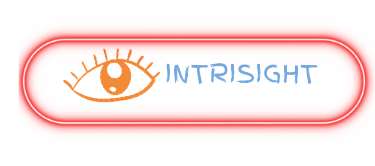Clinical labeling plays a pivotal role in the pharmaceutical industry, ensuring that investigational products used in clinical trials are clearly and accurately labeled. This labeling is not just about compliance with regulatory standards but also about safeguarding patient safety and the integrity of trial data.
Ensuring Regulatory Compliance
One of the primary functions of clinical labeling is to comply with regulatory requirements. Regulatory bodies such as the FDA, EMA, and others have stringent guidelines regarding the labeling of clinical trial materials. These guidelines are designed to ensure patient safety, proper identification, and traceability of the investigational products.
Labels must include essential information such as the name of the drug, dosage form, strength, administration route, batch number, expiry date, and storage conditions. This information ensures that the clinical trial materials are used correctly and consistently across different trial sites. Regulatory compliance also means that the labeling must be in the local language of the trial site, further ensuring clear communication and understanding.
Non-compliance with labeling regulations can lead to significant consequences, including trial delays, fines, and even termination of the trial. Therefore, accurate and compliant labeling is a non-negotiable aspect of clinical trials.
Enhancing Patient Safety
Patient safety is paramount in clinical trials, and proper labeling is crucial in achieving this. Accurate labels provide clear instructions on how to use the investigational product, including dosage and administration guidelines. This helps prevent dosing errors, which can have serious implications for patient safety and the validity of the trial data.
Labels also play a key role in identifying the investigational product and distinguishing it from other medications the patient might be taking. This reduces the risk of mix-ups and ensures that patients receive the correct treatment. Additionally, labeling includes important warnings and precautions, such as potential side effects or interactions with other drugs, further safeguarding patient safety.
Ensuring Data Integrity
The integrity of clinical trial data is critical for the approval of new treatments and drugs. Proper labeling contributes to this by ensuring that the investigational products are correctly identified and used throughout the trial. This consistency is essential for generating reliable and reproducible data.
Each label typically includes a unique identifier or batch number, which allows for traceability and accountability. This means that any issues or deviations can be traced back to a specific batch, facilitating investigations and corrective actions. Traceability also helps in managing recalls or withdrawals if any safety concerns arise during the trial.
Addressing the Challenges of Clinical Labeling
Clinical labeling is not without its challenges. One of the main challenges is managing the complexity and variability of labeling requirements across different regions and countries. Each regulatory body has its own set of guidelines, and ensuring compliance with all of them can be daunting.
Another challenge is the need for timely and accurate updates to the labels. As clinical trials progress, new information may emerge that necessitates changes to the labeling. This requires a robust labeling process that can accommodate such updates without causing delays or errors.
Technological advancements are helping to address these challenges. For example, electronic labeling systems can streamline the process, ensuring accuracy and compliance while reducing the risk of human error. These systems can also facilitate the management of multi-language labels, making it easier to comply with local regulatory requirements.
The Future of Clinical Labeling
The future of clinical labeling is likely to be shaped by further technological advancements and evolving regulatory landscapes. Smart labels, which include features like QR codes or RFID tags, are already being explored. These labels can provide real-time data on the product, such as temperature monitoring or usage tracking, enhancing both patient safety and data integrity.
Additionally, regulatory bodies are increasingly recognizing the need for global harmonization of labeling requirements. Efforts towards standardizing guidelines across regions can simplify the labeling process, making it easier for pharmaceutical companies to comply and focus on the core objectives of their trials.
Conclusion
In conclusion, clinical labeling is a critical component of pharmaceutical trials, playing a vital role in ensuring regulatory compliance, patient safety, and data integrity. Despite the challenges, advancements in technology and efforts towards global harmonization hold promise for the future of clinical labeling. By continuing to prioritize accurate and compliant labeling, the pharmaceutical industry can support the successful development and approval of new treatments and drugs, ultimately benefiting patients worldwide.

